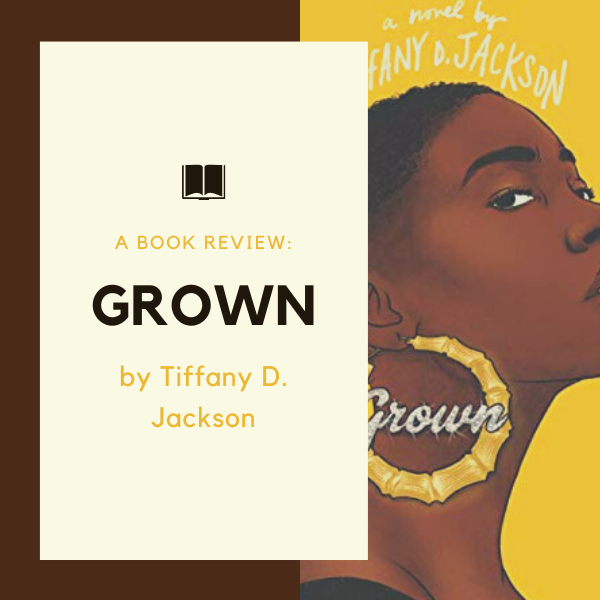Déjà vu
As I was reading Grown by Tiffany D. Jackson, I had an overwhelming sense of déjà vu. An all-powerful and dearly beloved R&B singer who has his sights on fresh, under-aged, talent? One with a dark side and who likes power and control? Seems a lot like the whole docuseries Surviving R. Kelly to me.
The story opens with Enchanted Jones coming to after a blackout with blood—beet juice—on her hands, presumably the blood of the mega star, Korey Fields. Before the body, we see Enchanted trying to get her big break as a singer, with the help of Korey Fields. But fame comes with a price, and she finds herself caught in the hell that is Korey Fields (you have to say the whole thing like Peter Kavinsky).
Tiffany D. Jackson stan
I love Tiffany D. Jackson. I was so taken with Monday’s Not Coming when I read it earlier this year. It was great commentary on the trauma Black woman and girls are subjected to and how the world blames them for that trauma or forgets about them completely. I was super excited to see Jackson’s new release earlier this fall. I missed out on the pre-order to get some sweet bamboo earrings. *regrets*
The only thing I knew about Grown was that I was definitely going to read it because Tiffany D. Jackson, and people kept talking about it all over #bookstagram. I like reading books when I have zero expectations, although I guess I had high expectations just because I love the author.
Mixed feelings
I can’t simply say that I did not enjoy the book. I still loved Jackson’s mastery of the plot twist. This book made me question my sanity (similarly to how Black women and girls are made to always question their sanity). I always like trying to figure out the ending, but I am always thrown in the end.
But I couldn’t help but to feel like the story was just rehashing all of the stories of the women victimized by R. Kelly. That kept me from feeling the originality and authenticity of the story. I recognized all the signs of abuse and control before they escalated. This part was very predictable. I wonder how my opinion and experience would have differed if I had read this book as a teen and not as a professional working in violence prevention.
The best part of this book for me was the author’s note at the end. Jackson talks about how this book is not about R. Kelly (although it really seems like it is); it’s meant to highlight how Black girls aren’t protected, blamed for their abuse, and vulnerable because in a world that tells them that they are unlovable, they run to the first person who offers that love, whether it’s sincere or a farce.



Pingback: [119] Tami Charles, author of MUTED | Feminist Book Club
I LOVE LOVE LOVE LOVE LOVE LOVE grown by Tiffany D. Jackson her books are amazing
i love her book so much and as a young black girly i could see it play out in my head